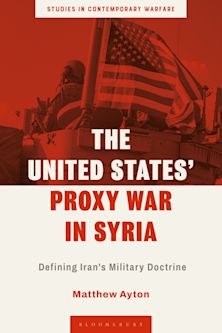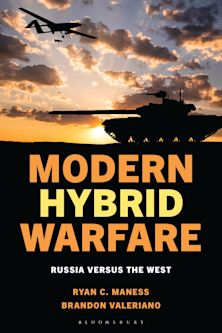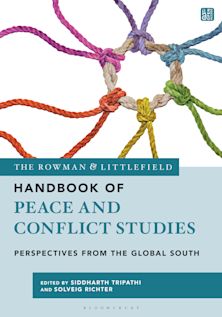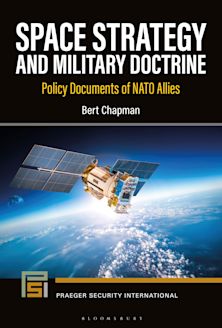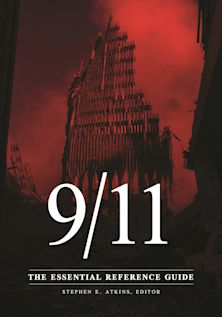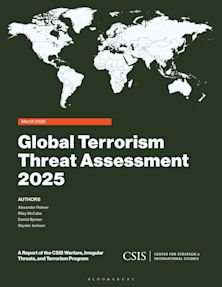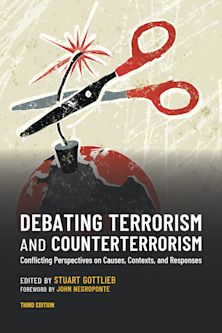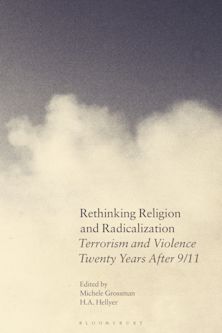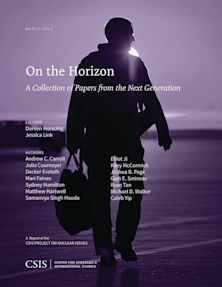The Academic-Practitioner Divide in Intelligence Studies
The Academic-Practitioner Divide in Intelligence Studies
This product is usually dispatched within 1 week
- Delivery and returns info
-
Free US delivery on orders $35 or over
Description
Internationally, the profession of intelligence continues to develop and expand. So too does the academic field of intelligence, both in terms of intelligence as a focus for academic research and in terms of the delivery of university courses in intelligence and related areas. To a significant extent both the profession of intelligence and those delivering intelligence education share a common aim of developing intelligence as a discipline. However, this shared interest must also navigate the existence of an academic-practitioner divide. Such a divide is far from unique to intelligence – it exists in various forms across most professions – but it is distinctive in the field of intelligence because of the centrality of secrecy to the profession of intelligence and the way in which this constitutes a barrier to understanding and openly teaching about aspects of intelligence. How can co-operation in developing the profession and academic study be maximized when faced with this divide? How can and should this divide be navigated? The Academic-Practitioner Divide in Intelligence provides a range of international approaches to, and perspectives on, these crucial questions.
Table of Contents
Chapter 1: Navigating the Academic-Practitioner Divide in Intelligence Studies – Rubén Arcos, Nicole K. Drumhiller, Mark Phythian
Chapter 2: Being on the Outside Looking In: Reflections of a Former Practitioner Turned Academic - David Omand
Chapter 3: Neither Knuckle-draggers nor Carpetbaggers: Proposing the Periclean Ideal for Intelligence Educators - Nicholas Dujmovic
Chapter 4: Intelligence, Science and the Ignorance Hypothesis – David R. Mandel
Chapter 5: Intelligence and the US Army War College: The Academic-Practitioner Relationship in Professional Military Education – Genevieve Lester, James G. Breckenridge, and Thomas Spahr
Chapter 6: Assessing the Quality of Strategic Intelligence Products: Cooperation and Competition between Scholars and Practitioners - José-Miguel Palacios
Chapter 7: Lessons Learned for the Private Sector Intelligence Analyst – Michael J. Ard
Chapter 8: Understanding and Countering Hybrid Threats Through a Comprehensive and Multinational Approach: The Role of Intelligence – Rasmus Hindren and Hanna Smith
Chapter 9: Building Ecosystems of Intelligence Education: "The Good, the Bad, and the Ugly" - Irena Chiru and Adrian-Liviu Ivan
Chapter 10: The Academic-Practitioner Relationship in France: From Strangers to Partners - Damien Van Puyvelde
Chapter 11: Playing to Our Strengths: Combining Academic Rigour and Practitioner Experience in Delivering Intelligence Education in Australia - Troy Whitford and Charles Vandepeer
Chapter 12: The Academic/Practitioner Divide in Intelligence: A Latin American Perspective - Andrés de Castro García and Carolina Sancho Hirane
Chapter 13: Teaching Ethical Intelligence in a World that Doesn't Think It Needs It – Jan Goldman
Chapter 14: Bridging the Divide – Rubén Arcos, Nicole K. Drumhiller, Mark Phythian
List of Tables and Figures
Bibliography
About the Authors
Product details
| Published | Apr 14 2022 |
|---|---|
| Format | Hardback |
| Edition | 1st |
| Extent | 330 |
| ISBN | 9781538144466 |
| Imprint | Rowman & Littlefield |
| Illustrations | 2 tables; 4 graphs; |
| Dimensions | 9 x 6 inches |
| Series | Security and Professional Intelligence Education Series |
| Publisher | Bloomsbury Publishing |
Reviews

ONLINE RESOURCES
Bloomsbury Collections
This book is available on Bloomsbury Collections where your library has access.












